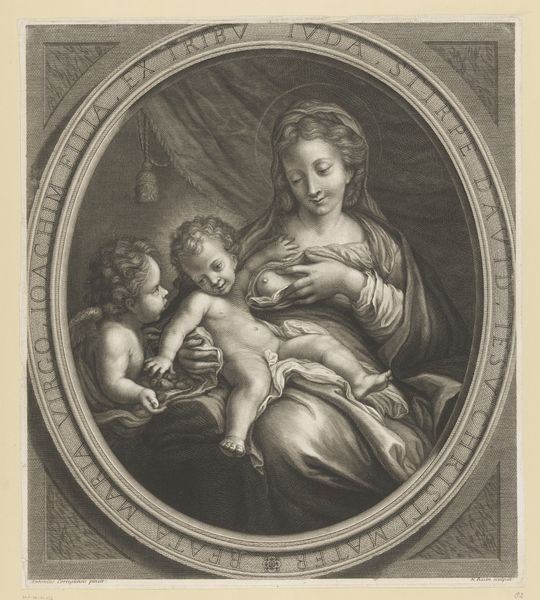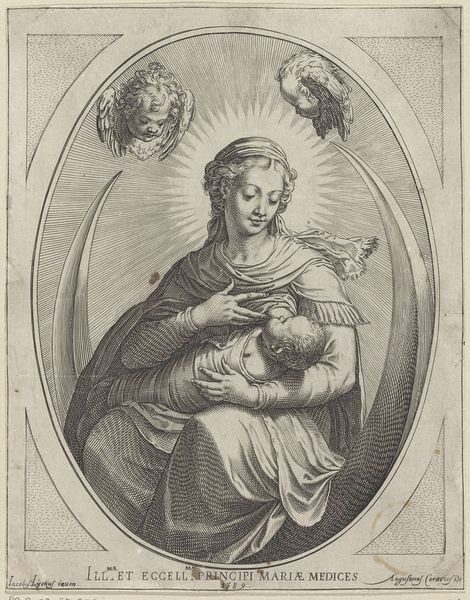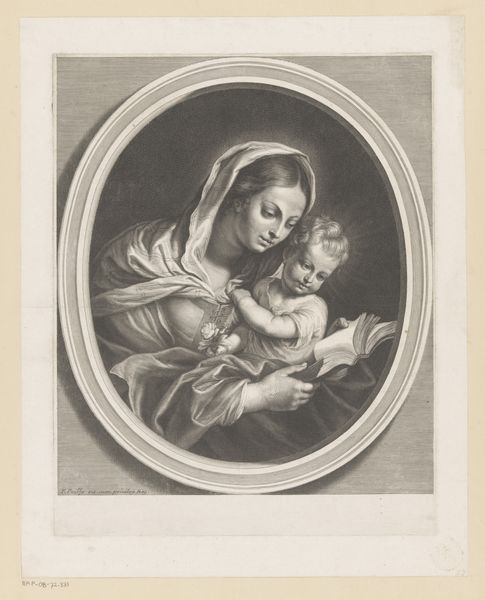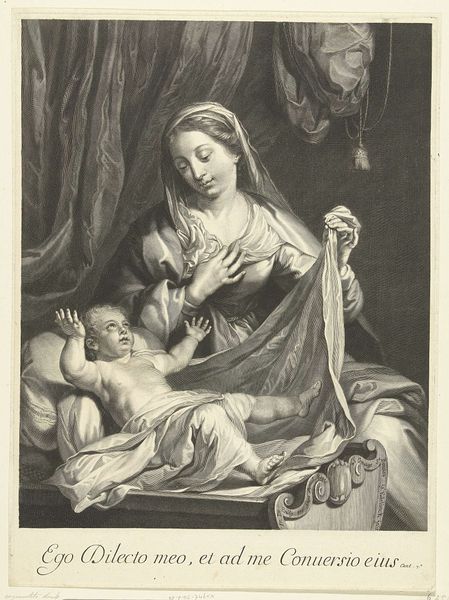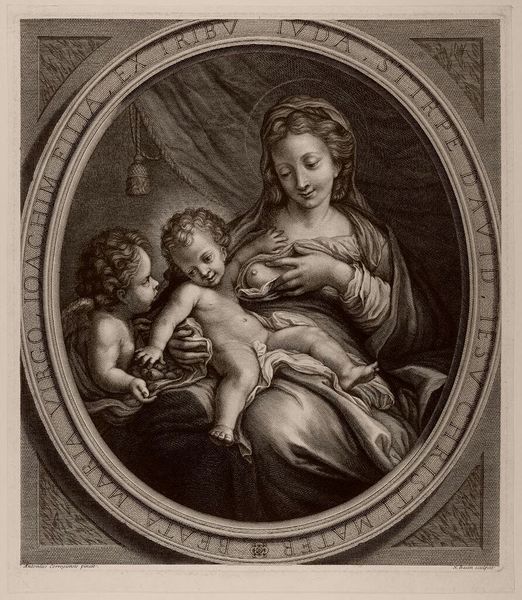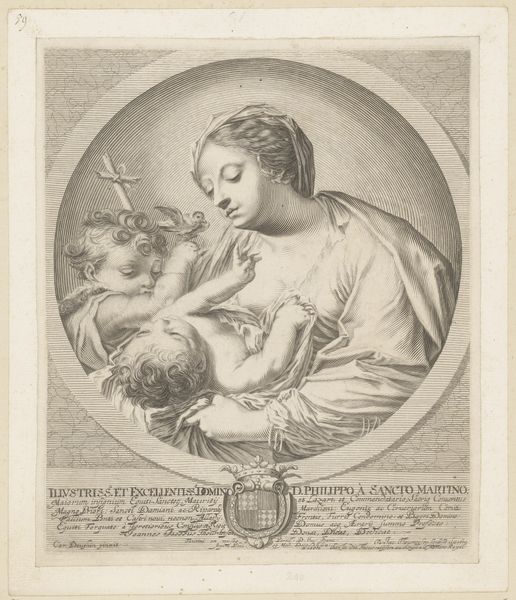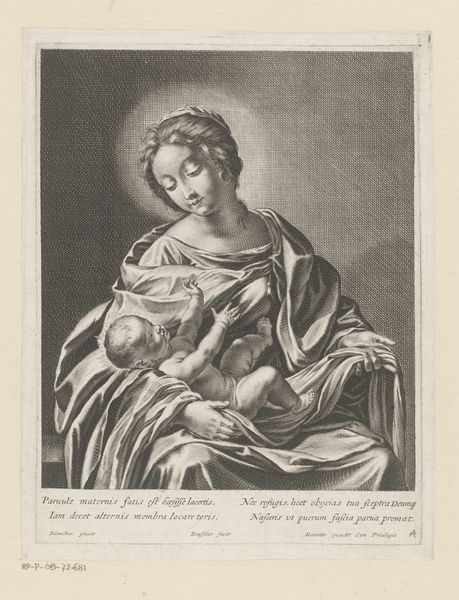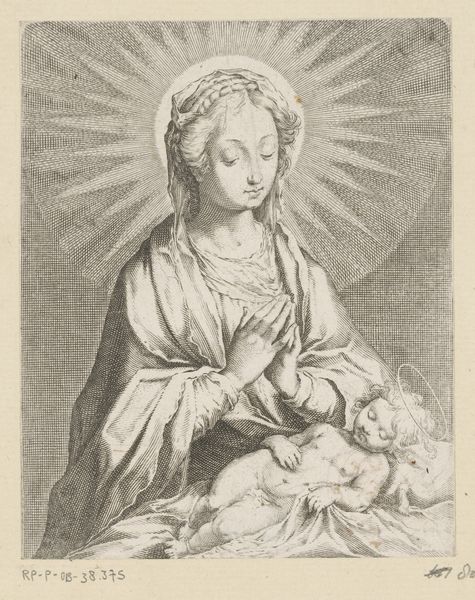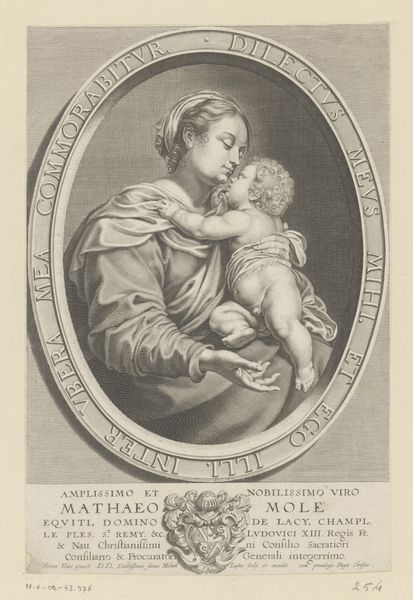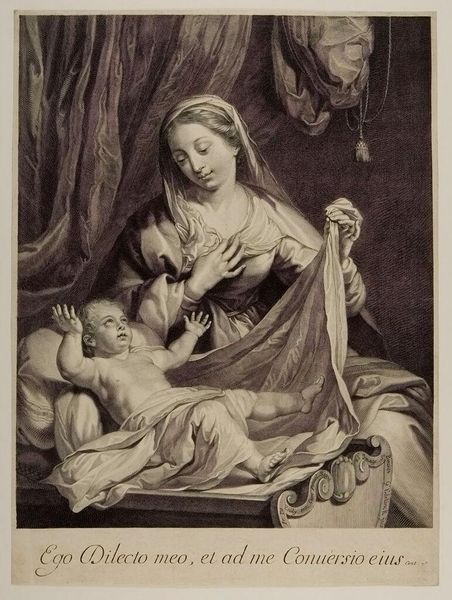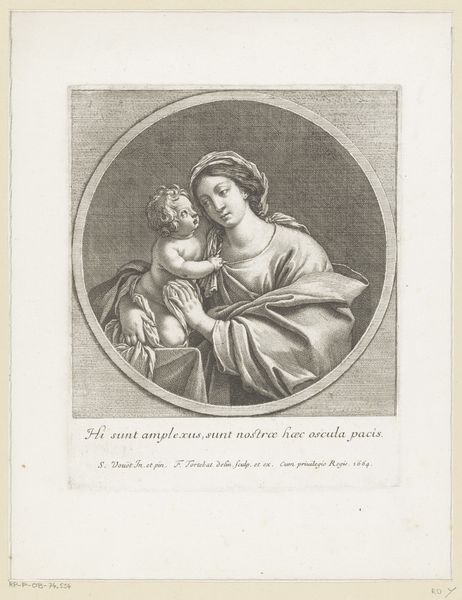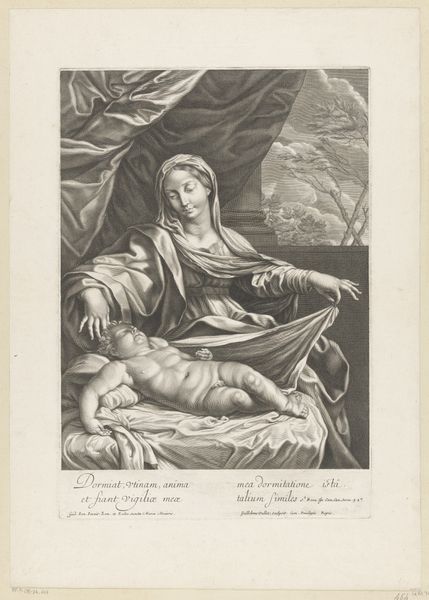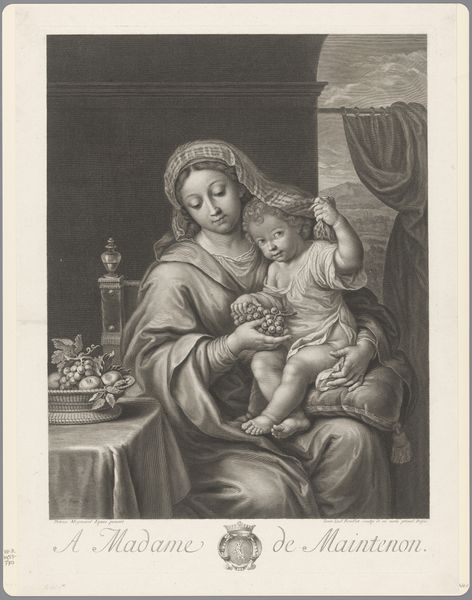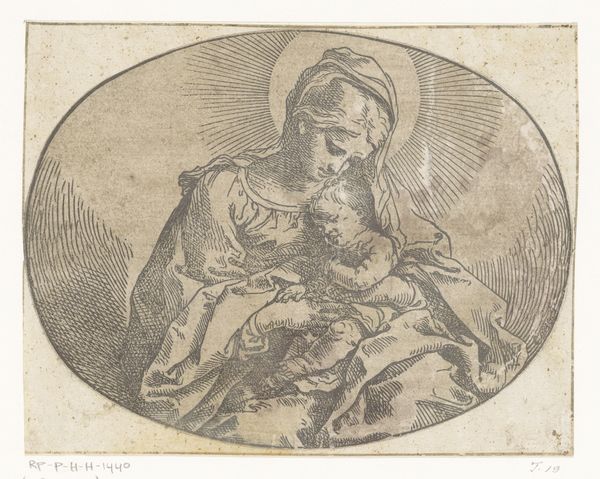
engraving
#
portrait
#
baroque
#
figuration
#
line
#
engraving
Dimensions: height 313 mm, width 248 mm
Copyright: Rijks Museum: Open Domain
Editor: This is "Maria met kind en roos," or "Mary with Child and Rose," an engraving made sometime between 1644 and 1696 by Nicolas de Poilly, and it's at the Rijksmuseum. It's such a tender image. The Madonna gazes down at the child, who reaches for… something. What do you see in this piece? Curator: I am immediately drawn to the rose. A rose is far more than a pretty bloom. The rose here is heavy with the weight of cultural memory, evoking associations with divine love, but also secrecy, and, of course, the Virgin Mary herself. In this context, its thorns whisper of future suffering. Notice how the Christ child reaches not for the rose itself, but toward something beyond it, almost as if sensing what it portends. Editor: That's fascinating. I hadn't thought about the thorns at all. It's interesting how that tiny detail changes the whole feeling of the image. Does the rose’s symbolism change over time? Curator: Absolutely. The symbolism is fluid. Over centuries, it acquires layers of meaning, shaped by shifts in social, religious, and even political climates. Consider its presence here, a time of intense religious reform across Europe. The artist invites the viewer to contemplate, to delve into the deeper emotional and psychological landscape linked to these established symbols. What might the child's gesture imply about free will versus divine purpose? Editor: I guess the rose becomes a powerful symbol. Thanks for your insights. This makes me think about other artworks where simple things can have significant, underlying meanings. Curator: Indeed. Every detail carries the weight of a thousand stories and collective experiences. I leave contemplating on those visual stories with you.
Comments
No comments
Be the first to comment and join the conversation on the ultimate creative platform.
